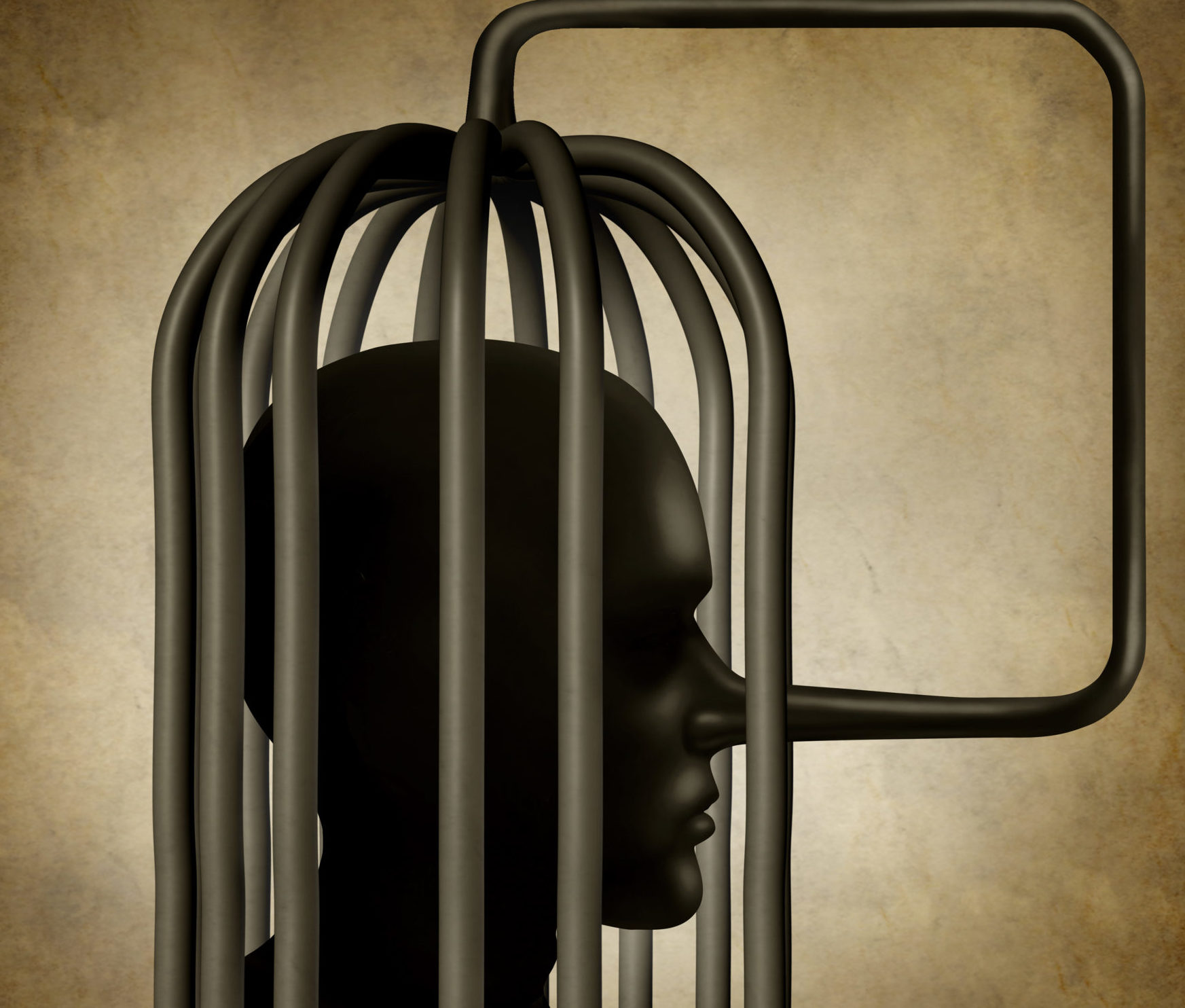
How to Avoid Incriminating Yourself
There’s no such thing as a friendly interrogation by the police. If you’ve been accused of a crime or your name has come up in an investigation, you have the responsibility to make sure that you don’t incriminate yourself. Below are a handful of ways to avoid doing so when speaking with the police.
Don’t Volunteer Information
The best way to avoid incriminating yourself is to stick to the questions that you are asked by the police. Don’t go out of your way to volunteer more information about your situation, even when you think that doing so will make you look better to the police. Instead, stick solely to those topics about which you are asked.
Stay Off of Social Media
Your next step is to make sure that there’s as little to use against you as possible. If you know that you are going to go in to talk to the police, it’s time to let your social media accounts go quiet. Even an innocuous post can lead to further investigations, so shut everything down for the course of the investigation. If you absolutely must use social media, refrain from talking about anything related to the incidents about which you are being questioned.
Don’t Lie
It’s vital that you don’t lie when you are being questioned. This doesn’t mean that you have to voluntarily offer up every piece of information that you have, but rather that you should never make up a story. Even those who are innocent can fall afoul of the law when the police find out that they’ve made something up during questioning. If you don’t know an answer, say that. If you don’t want to answer a question, tell the police.
Don’t Speak Without a Lawyer
If you are questioned by the police, contact a lawyer as soon as possible. You have a right to an attorney any time you are questioned, but you have to invoke that right. While it may take time to get a lawyer to you and the police may act like they just want to help, the truth is that a good lawyer will always be your best defense. Remember, a lawyer knows your rights better than either you or the police.
It’s always best to be careful when you’re being questioned. Regardless of your innocence, it is up to you to proactively protect your rights in situations that could lead to your arrest or conviction. Make sure that you don’t volunteer information, that you refrain from posting on social media, that you avoid making stories up, and that you work with a criminal defense attorney in PA. Doing so may mean the difference between freedom and jail time.
Read More
The Difference Between State and Federal Crimes
Being charged with a crime is never a positive life experience, but the level of the charge can make a major difference in the total impact a conviction may bring. One of the primary differences in criminal charges is the government level of filing. Anyone facing serious criminal charges on either side is fighting an uphill battle, but many defendants fare better in state cases than federal cases for the most part. Also, many charges can be both state and federal, leaving the agencies to determine which would be the best level to prosecute. Regardless of the government agency filing the charges, it is always vital to have the best criminal defense lawyer in Philadelphia representing the case for a reasonable outcome.
Similarities
State and federal charges both follow the same format in general. They begin with arraignment followed by a hearing to discuss the nature of the charges and evidence discovery. Rules regarding evidence acquisition concerning search and seizure and standard of proof are the same, but the procedures are not always consistent. Jury selection for a trial is also very similar when a defendant wants to use their full rights to criminal defense. Each case is unique in some way, but the basic prosecution methods are set by constitutional standards on both levels.
Differences
The primary difference in the level of charges is how conviction and punishment are handled. Sentencing guidelines differ for state and federal courts, with states having the authority to implement probation and parole policy independently. Punishment schedules are also much more stringent in federal cases, and actual incarceration is served in a federal facility instead of being housed in the state system. Federal cases will commonly require interstate activity for both levels, and the seriousness of the activity can determine if the defendant is prosecuted federally or within the state jurisdiction. Many laws overlap according to the codes, and double jeopardy could be a problem for prosecutors if they do not work together ensuring the case is valid and evidence is admissible.
Parole Systems
A major difference in federal cases is that the federal parole board handles all activity regarding prisoner release. States have the authority to handle their own parole and probation status for each defendant, and many times it is much easier to receive probation within the state system. Federal prisoners must typically serve more time before being considered for parole, then being evaluated every 18-24 months. Probation could be available but only based on the seriousness of the crime. Given that federal charges are almost always more serious than state charges, receiving a probationary sentence is rare in the federal court system although it can happen.
Another major difference between the two levels of government is that all attorneys are licensed in the state in which they practice, but defendants must have a federally-authorized attorney when defending federal charges. Federal defendants in Pennsylvania should always contact the legal professionals at Brennan Law Offices for comprehensive criminal defense.
Read More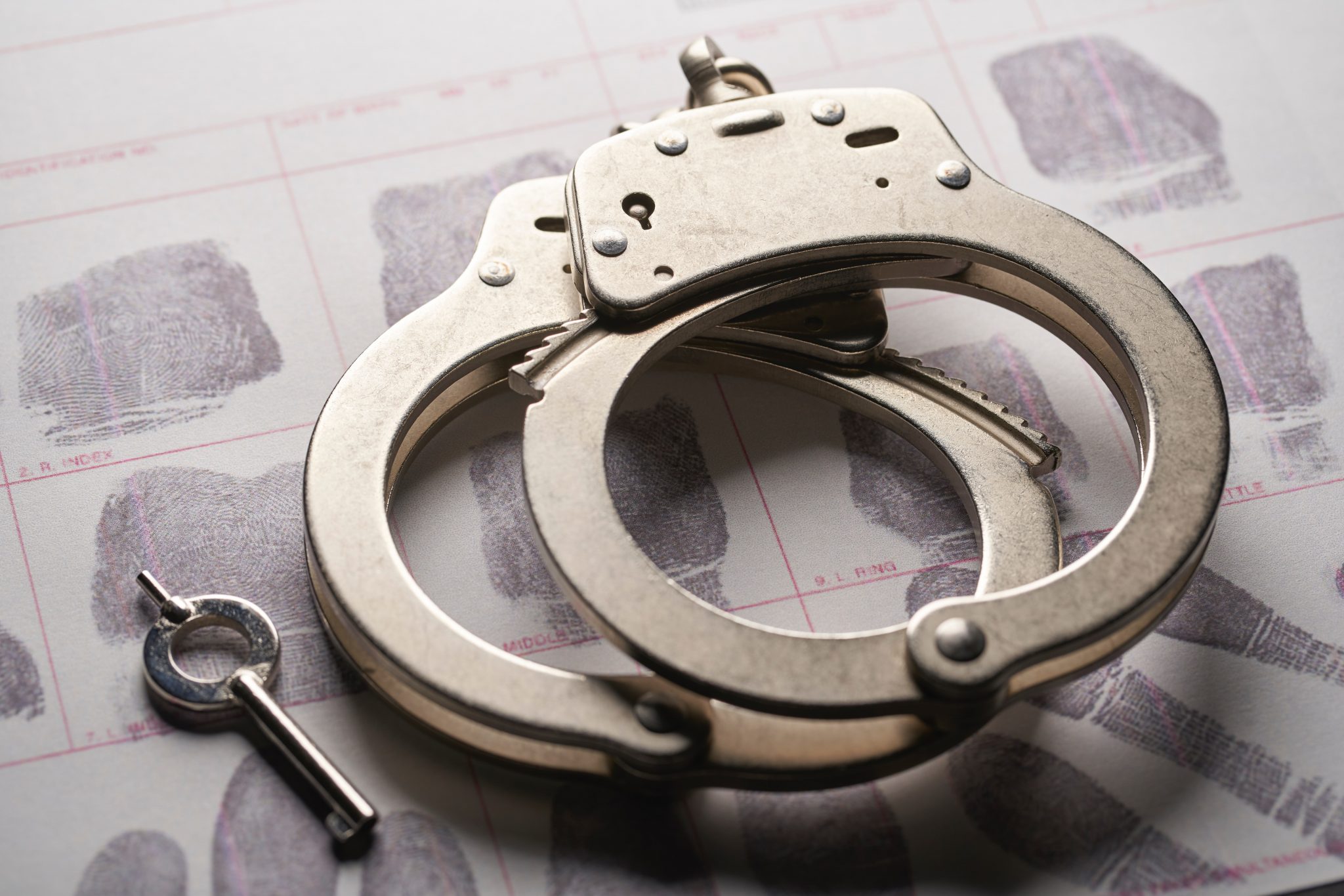
What is Criminal Homicide?
There is no offense more serious than a criminal homicide. This crime involves taking another human’s life, and so it involves the most serious penalties under Pennsylvania law. There are three main categories of homicide: murder, manslaughter, and justifiable homicide. We will help you to better understand the various types of charges you may face if you have been involved in a criminal homicide in Pennsylvania.
Murder
If the death of a victim was intentional or the byproduct of another crime, you will likely be charged with murder. However, murder charges fall under various degrees:
- First-degree Murder occurs when it is proven that a murder was premeditated, and that the offender had every intention to commit a homicide from the beginning of the crime’s conception. First-degree murder is the most serious of all homicide charges and often results in life in prison or death by lethal injection.
- Second-degree Murder is committed when the murder someone occurs while in the process of committing a separate crime. These other crimes often include robbery, kidnapping, and rape. Often, a second-degree murder was foreseeable before the homicide occurred, but not fully premeditated. This type of murder can also lead to life in prison.
- Third-degree Murder is a category that covers all other types of murder that cannot be classified as first or second degree. These murders can result in various lengthy prison sentences, depending on the crime.
Manslaughter
The key difference between murder and manslaughter is that manslaughter lacks intent and/or premeditation. There are two types of manslaughter, voluntary and involuntary.
- Voluntary Manslaughter occurs if you commit a homicide in a fit of rage. You did not plan to murder anyone, but you were provoked or overly passionate in the moment of the crime, causing someone’s death. Voluntary manslaughter charges can lead to a maximum of 20 years in jail.
- Involuntary Manslaughter is constituted if you acted recklessly, and your careless actions led to the death of another person. In other words, the death was accidental, but you caused the accident. In Pennsylvania, involuntary manslaughter can be sentenced with up to 5 years in prison.
Justifiable Homicide
A justifiable homicide is a classification reserved for a homicide committed out of necessity, such as self-defense. In these cases, an individual is using the defense that violent action was necessary in order to protect yourself or someone else from imminent bodily harm. A justifiable homicide is often not classified as an actual crime, and you will not be held criminally liable.
The Best Defense for Criminal Homicide
If you have been charged with a criminal homicide, getting the best criminal defense attorney in PA is the key to defending yourself and protecting your freedoms in the most serious of criminal homicide cases. Do not wait another minute to contact us to discuss your criminal homicide charges today.
Read More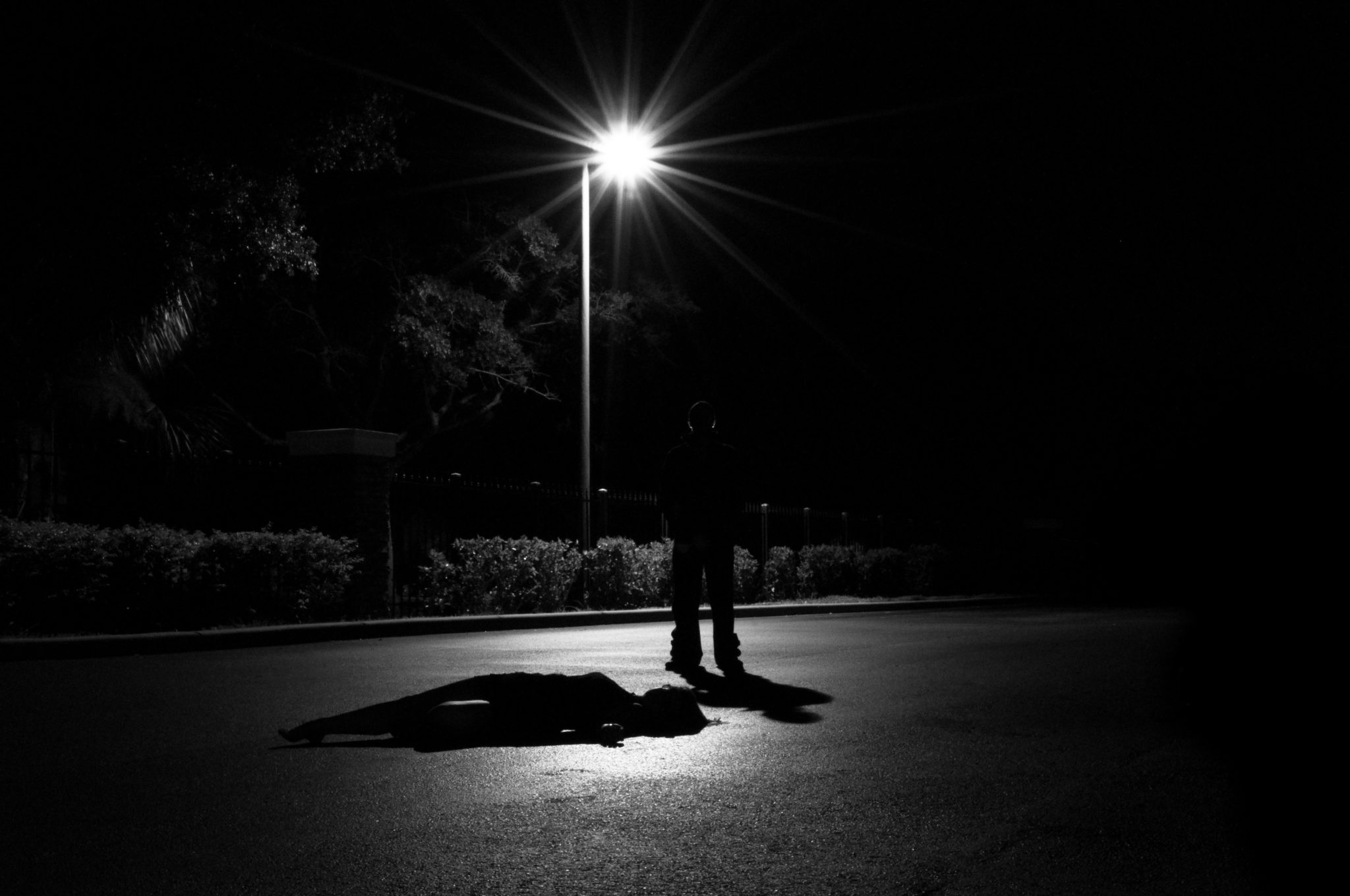
What is the Difference Between Aggravated Assault and Attempted Murder?
You get into a gun fight and, while someone gets into a violent fight, stabbing another person and they are charged with aggravated assault. What’s the difference between the two?
There is often a fine line between aggravated assault and attempted murder, but both can yield very serious consequences. Here, we will go over the key traits of both aggravated assault and attempted murder crime so that you can better understand the charges and penalties in Pennsylvania.
Aggravated Assault Charges in PA
In Pennsylvania aggravated assault cases, an individual must attempt to “cause serious bodily injury to another” or causing injury intentionally, knowingly or recklessly under “circumstances manifesting extreme indifference to the value of human life.” (According to Pennsylvania law 18 Pa. Cons. Stat. section 2702(a)(1)). In order to be classified as aggravated assault versus simple assault, it must be proven that the person acted knowingly and recklessly classified, while also considering the use of a deadly weapon. However, if the act of violence is used against certain public officials or employees, the crime may be charged as aggravated assault even without a weapon involved.
Aggravated assault convictions in Pennsylvania are considered a first-degree or second-degree felony, depending on the circumstances of the case. These crimes will typically result in fines up to $25,000 and 10 years in prison if the assault did not involve great injury. However, you may be subject to up to 20 years in prison if the defendant caused serious bodily injury to the victim.
PA Attempted Murder Cases
The main difference between aggravated assault and attempted murder is that in an attempted murder charge, the prosecution must provide that the defendant specifically intended to kill the victim and took concrete steps toward doing so. You may be charged with attempted murder if you have:
- Injured someone with a deadly weapon (gun, knife, or even car)
- Intentionally and knowingly attempted to cause a death, whether or not successful
- Placed someone in a situation in which they are likely to be killed
Examples of actions that can result in an attempted murder charge include stalking or tracking down a victim looking for an opportunity to commit murder, breaking into and entering a home, trying to convince a victim to come to a specific place or taking actions to make it possible for a victim to be murdered, or paying/convincing someone to commit a murder for you.
An attempted murder conviction in Pennsylvania could lead to a maximum of 20 years in prison if no serious bodily harm occurred, or up to 40 years if serious bodily injury was caused.
Key Differences Between Aggravated Assault & Attempted Murder
Again, the main difference between aggravated assault and attempted murder is the presence of intent. Though neither crime results in a death, the charge will be attempted murder if you the defendant intended this outcome. Attempted murder is a premediated crime, while aggravated assault is not. However, aggravated assault can easily turn into a voluntary manslaughter charge if you acted in the moment with not only the intent to cause bodily injury, but also the intent to cause death.
If you have been charged with aggravated assault or attempted murder, our skilled team of criminal defense attorneys in Philadelphia can help. Contact us today to begin building the best possible defense for your case.
Read More
What are the Consequences of Parole Violation?
In Pennsylvania, parole is a conditional release, meaning certain offenders are allowed to serve the remainder of their jail sentence out in the community if they abide by certain conditions. While anyone who has served the minimum of their sentence can get parole, it is considered a privilege and not a right. As a result, if parole conditions are violated at any time, you may face very serious consequences.
What Constitutes a Parole Violation?
There are two types of parole violations: convicted and technical. Convicted violators break their terms by committing a new crime, while a technical violator has violated any term of their parole without committing an additional offense. Examples of technical violations include, but are not limited to:
- Missing a court date
- Failing to report to one’s probation officer
- Drug possession or sales
- Violating travel restrictions imposed by one’s parole officer
- Failing to pay court costs
While the consequences of a convicted violation and a technical violation will differ, any type of parole violation can potentially lead to having to serve out the remainder of your sentence in jail.
I Violated My Probation – Now What?
You may receive a warning from your parole officer—this is the best case scenario. If the parole officer deems the violation too serious for a warning, they may require that you appear in court. In the court hearing, your parole officer will request a consequence, which may include jail time. If you are found guilty of violating your parole, sentencing will occur shortly after the hearing in which the court may decide to extend your probation, require you to serve brief jail time, or revoke your probation privileges all together.
Other consequences include, but are not limited to:
- Additional drug tests
- State-mandated rehabilitation completion
- Stricter curfews and travel/financial restrictions
- Community service
- Court fines and restitutions
These consequences will be affected by the severity of your violation, the frequency of your violations, and as well as various other factors pertaining to your criminal history (whether you’re a “first-time” or “repeat” offender, etc.).
If you’ve violated your parole conditions, having experienced, knowledgeable representation is very important in fighting to minimize your consequences. Your counsel is allowed to aid you throughout all court processes and hearings you may undergo while facing a parole violation. To speak with our parole violation lawyers in Philadelphia and make sure your rights are protected, contact us today.
Read More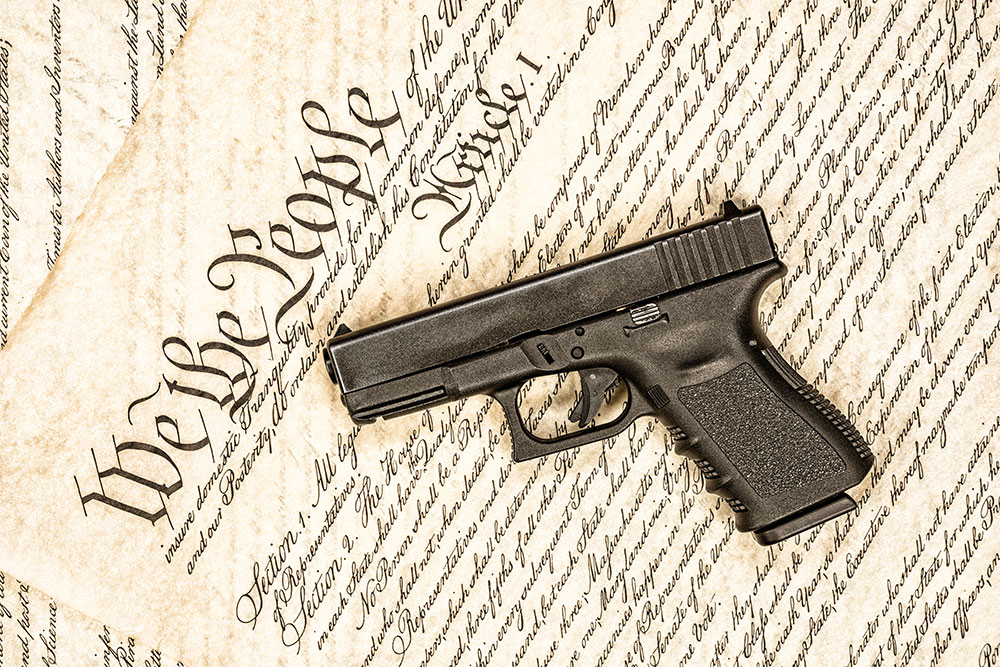
Common Questions about Gun Charges in PA
A gun charge is a serious crime in Pennsylvania. It will raise the stakes in any criminal case, and even a first-time offense can lead to significant jail time. There are a number of defenses the Bill Brennan team has successfully used in cases involving weapons and firearms, but it is important to understand your rights to help you avoid a criminal record and the serious consequences that follow a gun charge. Here are a few of the most common questions related to firearms and gun charges in PA.
Do I need a license to carry a firearm in PA?
Under the Constitution of the Commonwealth of Pennsylvania, every citizen is guaranteed the right “to bear arms in defense of themselves and the State.” And while the state does not require people to register their firearms, anyone who wants to carry a firearm must have a valid Pennsylvania license to do so. The only exceptions are:
- The firearm does not leave your home
- The firearm does not leave your fixed place of business
How do I obtain a license to carry in PA?
In order to obtain a license, you will have to go through an application process with your county sheriff’s office, involving the Pennsylvania Instant Check System (PICS), which is managed by the Pennsylvania State Police and provides gun suppliers with relevant background checks of those who wish to purchase to determine if you are eligible.
Are there certain people who cannot carry a gun?
There are some cases where you will not be permitted to carry a gun – open or concealed – in the state of PA. These situations include an individual who:
- Has a reputation to likely act in a manner dangerous to public safety
- Has been adjudicated delinquent during a ten year period prior to carrying
- Is a convicted felon; primarily violent felonies such as murder, rape, robbery, etc.
- Has been convicted of certain domestic violence crimes
- Has been dishonorably discharged from any branch of the U.S. armed forces
- Is a fugitive from justice
- Has been convicted of certain drug or controlled substance crimes, or are addicted to, or have been convicted of unlawfully using illegal drugs
- Has been judged as mentally incompetent or has ever been involuntarily committed to a mental institution
- Has been convicted of a DUI/DWI on three or more separate occasions within a five year period of the time they are caught carrying
- Is not a U.S. citizen and is in the U.S. illegally
If you are also prohibited from carrying a weapon or firearm, it is a second-degree felony, which could result in up to 10 years in prison and $25,000 in fines.
What are the consequences for carrying a firearm without a license?
It is a third-degree felony to carry a firearm without a valid license or specific permit – with the exceptions mentioned above. If you are caught, you could face up to 7 years in prison and a $15,000 fine. If you have a clean record and would have been eligible for a license, it is still punishable as a first-degree misdemeanor, which is punishable by up to 5 years in prison and a $10,000 fine.
What is the Concealment of a weapon, and what are the consequences?
Pennsylvania is considered a relatively pro-gun state with limited restrictions on ownership and possession; however, any individual carrying a firearm concealed or in their vehicle can be charged with a serious offense – whether you have a license or not.
Pennsylvania law defines concealment of a firearm or weapon as “any person who carries a firearm in any vehicle, or any person who carries a firearm concealed on or about his person; except in his place of abode (residence) or fixed place of business, without a valid and lawfully issued license, commits a felony of the third degree.” A third-degree felony can carry a prison sentence of up to 7 years and/or fines of up to $15,000.
What are other charges related to gun and firearm possession?
Any individual in possession of a weapon with an altered, removed, or obliterated manufacturer’s serial number is a serious federal offense and punishable of up to 10 years of jail time, in addition to large fines.
The theft or sale of a stolen gun is also a serious crime in PA and is punishable as a felony of the second degree.
If there is proven intent to use the firearm during criminal activity, it is a first-degree misdemeanor, in which you could face up to 5 years in prison and 10,000 fine. Even if the gun is not loaded or you never actually used the weapon, these penalties still apply.
Minors, or anyone under the age of 18, is prohibited from possessing a gun, but there are a few exceptions to this law in Pennsylvania.
How can I protect my rights in a gun charge conviction?
There are exceptions to who can conceal and carry a gun in Pennsylvania, and a number of defenses that could help preserve your rights. Our gun charge attorneys have handled many of these violations by reviewing the evidence against the defendant and challenging the prosecution under reasonable suspicion, probable cause, and more. Don’t risk a criminal record by choosing anyone but the best gun charge attorneys in Philadelphia to represent you. Contact us to discuss your case.
Read More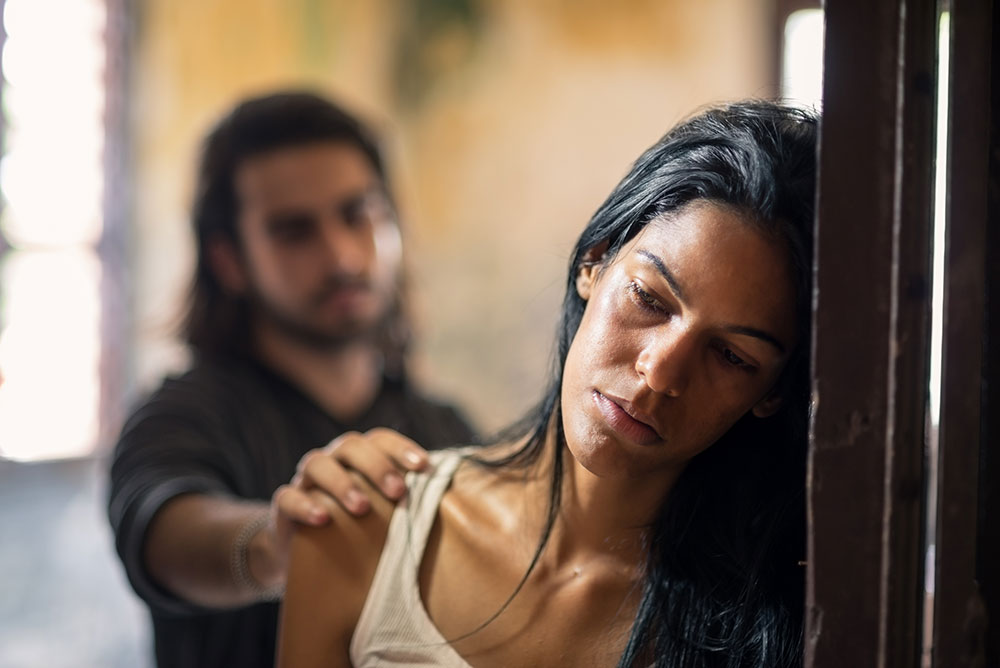
What Happens if You’re Arrested for Domestic Violence in PA?
As one of the most disruptive events someone can experience, domestic violence often causes overwhelming feelings of uncertainty and fear. As the term “domestic” implies, your home, your relationships, and those closest to you are all affected, and without taking the proper steps after an arrest, the consequences can drastically change your life forever. If you or someone you know has been arrested for domestic violence, here is what you need to know about what happens next.
The Arrest
Although not a separate violation from other crimes of violence under Pennsylvania law, domestic abuse does make these charges more complicated. The person who makes the call to the police is automatically in a stronger position, since the police do not need to witness an act of violence in order to make an arrest. They will simply need to see the injury or other evidence of the victim’s claim.
And once the charges are filed, the alleged victim can not make the decision to have them dropped. If you are arrested for domestic violence, you will not be released until you go before a judge, as they will determine whether or not you present a danger to the alleged victims or others.
It’s also extremely important to remember that everything you say during an arrest can be held against you in court, so it is crucial that during this emotional time, you invoke your right to remain silent until you have an experienced criminal defense attorney by your side.
What Happens Next?
In all domestic violence cases, you will be required to attend a First Appearance, or Advisory Hearing, shortly after your arrest. To avoid making mistakes or implicating yourself of harsher penalties, you will want an attorney present with you during this hearing so do not delay in calling our offices after our arrest.
Before the hearing the prosecutor will conduct an investigation of your criminal history and other charges in your past to present before the judge. Reversely, your defense attorneys will review how the arrest took place and the injury or evidence in which the arrest occurred to then argue that the police lacked probable cause and ask the court to release your or that the judge set a bond.
The next step is an arraignment in where you will be required to enter an informal ‘not guilty’ plea. In many cases, your attorney will be present to do this on your behalf. A pre-trial conference will then occur, discussing the details of the claims to establish pre-trial offers by the government to resolve the case.
Our experienced domestic violence attorneys are often able to resolve the case before going to trial, but in some cases, you will have the right to elect to be tried by a judge and jury. Based on the outcome of this trial, there are options to pursue post-trial appeals through the Superior supreme courts in PA. At Bill Brennan law offices, our team will not stop fighting to protect your rights until you receive the outcome you deserve.
Protection From Abuse Order
An alleged victim may also apply for a Protection from Abuse (PFA) order in which there are various degrees of restrictions placed on the accused, such as entering the home of the victim or going places where the victim may be – similar to a restraining order. If there is a threat of immediate danger felt by the victim, they could pursue a temporary PFA, which would be granted at a hearing without the defendant present until another hearing with the defendant will occur.
The other option is a PFA with a hearing within 10 days of the filing of a petition in which the accused is welcome to attend and present a defense. If unsuccessful, the judge may grant a final protection from abuse order that could last up to three years.
Why Should You Fight a Domestic Violence Charge?
1. Your Freedom – you may be facing possible jail time if convicted of a felony charge
2. Your Relationships – you may lose the ability to have a relationship with your children, including loss of custody or limited visitation rights
3. Job & Housing Opportunities – many employers and landlords will conduct background checks and deny you the ability to work or live where you want
4. Employment Security – you could lose your existing job if you are in a field that involves the caretaking of others or the possession of firearms
5. Your Second Amendment Rights – likewise, your right to legally purchase firearms or ammunition in PA could be invalidated for life
6. Costs – fines and penalties can be very expensive and if the victim gets a PFA, you may also be responsible for losses they claim occurred from the abuse
If you or a loved one has been arrested for domestic violence, do not jeopardize your freedom, relationships or reputation by waiting to get the help of an experienced criminal defense attorney in Philadelphia. Our legal team will help you build a strong defense to fight for your rights. Contact us today.
Read More
What Constitutes Domestic Violence in Pennsylvania?
Domestic violence in Pennsylvania is unique in that there are no separate charges for these crimes. Instead, based on the acts committed, they are charged as other offenses under state law. So just like with any abuse or sexual assault crime, the penalties can be very severe. This is why knowing what qualifies as domestic violence in Pennsylvania is so important in getting the legal help you need to defend and protect your freedom.
What is Considered a Domestic Relationship in Pennsylvania
Under Pennsylvania law, domestic violence applies to cases where those involved are “family or household members,” people who have parented a child together, or current/former intimate dating partners. The terms family or household members more specifically constitutes spouses – whether current or divorced/separated – parents and children, brothers and sisters, and others related by blood or “affinity.”
Charges Associated with Domestic Violence
In Pennsylvania, domestic violence is typically associated with the following acts:
- Assault – knowingly, intentionally, or negligently causing bodily harm or attempting to cause bodily harm
- Child Abuse – physical or sexual assault of a child, molestation
- Endangering a Child’s Welfare – violating the duty of protection, care, and support that parents legally owe their children
- Weapon Charges – threat or use of weapons, unlawful possession or use
- False Imprisonment/Kidnapping – interfering with someone’s liberty through physical restraint or threats
- Stalking – engaging in a course of conduct or repeated acts in a way that places another person in reasonable fear of danger
Consequences of Domestic Violence Charges
The consequences associated with domestic violence are very serious. Offenders often face mandatory incarceration, significant fines, probation, or are required to take counseling or anger management courses. While these charges are significant and troublesome enough, the side effects can be even more disruptive. Domestic violence convictions become part of public record, which can lead to long-term consequences in many aspects of your life.
For example:
- Employment
According to HR.com, 96% of employers conduct at least one type of background check on a new hire. If you have a criminal history involving violence, you may be at a significant disadvantage to a candidate who doesn’t. And in some fields, you will be completely ineligible for employment – like healthcare and education. - Housing
Landlords want to know that their tenants are trustworthy, respectful, and won’t be a problem. For this reason, many will request a criminal background check prior to renting and may be hesitant to choose someone posing a risk of violence occurring in their property. - Professional Licensing
For regulated professions in fields such as law, medicine, or education, a background check and explanation of any legal activity in your past will be required. In most cases, domestic violence will make it much more difficult to obtain a professional license.
How a Criminal Defense Attorney Can Help
If you are facing accusations of domestic violence, a criminal defense attorney with experience in all kinds of domestic abuse cases can help prevent your allegations from becoming a conviction. Most cases involve complicated, personal dynamics between family and household members, which present an opportunity for you to present the best possible argument.
A criminal defense attorney will be by your side during any questioning that law enforcement my conduct to prevent anything you say from being used against you in court. They can also help determine if and when self-defense applies in your situation, which is often a very convoluted question. Your lawyer will also have the skills to negotiate a plea bargain with the most favorable terms while representing you throughout a possibly complicated trial proceeding.
To discuss your specific situation or learn more about domestic violence charges, our criminal defense attorneys have unrivaled experience in domestic violence charges to help you obtain the best possible outcome for your case. Contact us for a free consultation and get the strong defense you deserve.
Read More
What Are The Consequences For Not Showing Up To Court?
Going to court can be intimidating. And the idea of facing judges, juries, and prosecutors may tempt you to just not show up altogether. But if you’ve been summoned to court and fail to appear, the case won’t resolve itself and it certainly won’t be forgotten. In fact, it will only make things worse. That’s why we’re here to answer all the questions you have regarding the consequences of not showing up to court.
What Happens If I Don’t Show Up?
When you receive a summons or notice to appear in court as a criminal defendant, it is a court order. Violating a court order is a crime itself under federal law, so failing to appear could result in additional charges.
According to 231 Pa. Code Rule 1910.13-1, “If a party fails to appear at a conference and/or hearing as directed by order of the court, the court may issue a bench warrant for the arrest of the party.”
What is a Bench Warrant?
A bench warrant is a warrant for your arrest, named aptly due to the fact that it is issued by the judge from “the bench.” It permits that law enforcement can take you into custody at any time. For example, if you fail to follow a simple traffic law like running a stop sign, the officer that pulls you over is entitled to arrest you on the spot. In a more serious case, the judge may request that police go to your home or place of work to hold you in custody until your hearing.
There are two different types of bench warrants that can be issued in Pennsylvania: Normal and Judge-Only.
Normal Bench Warrant: Warrant issued by the judge that is serving bench warrants on that particular day.
Judge-Only Bench Warrant: Warrant that can only be handled by the judge that issued it.
Bench warrants can also be issued for violating your probation or missing a probation interview, so if you’re unsure of whether or not your failure to appear in court resulted in a bench warrant, it’s crucial you contact an experienced criminal defense attorney to discuss your options before your situation gets worse.
What Do I Do if I Have a Bench Warrant?
From a judge’s perspective, a failure to avoid your court hearing doesn’t reflect well on your character or intentions. First, you should contact a criminal lawyer in Philadelphia to help advise you of the best course of action. If you missed your court date for a justifiable reason, such as a medical emergency, you’ll want to gather any documentation you can find to prove you received medical care at the time of your hearing.
In any other case, you’ll likely have to turn yourself into law enforcement. Once you do, the court will arrange a date for your bench warrant hearing. There is a chance you could be held in custody for up to 72 hours while waiting for a hearing, or even longer depending on timing with weekends or federal holidays.
At the hearing, the judge will lift the warrant, but it’s likely you’ll have other penalties issued as well. This may include being held in contempt or facing jail time of up to six months. Other repercussions may include:
- Forfeiting your bond
- Charges for any future crimes you commit will likely worsen
- Without an experienced attorney, anything you say at your bench warrant arrest could exacerbate your original charges
- Jail time, fines and suspension of your driver’s license may also occur
If you’ve been convicted for not appearing in court, our attorneys are skilled and ready to help you explore all the viable options to receive the best possible outcome. Don’t wait another day to schedule your free consultation. Contact our experienced criminal defense lawyers so we can fight for you.
Read MoreWhat You Need to Know Before Being Questioned by A Detective
If you’re a suspect in an investigation, there’s a good chance you’ll be contacted by a detective to discuss the allegations against you. Most likely, a lot of questions will start running through the head. Do I have to talk to them? What will they ask me? If I have nothing to hide, I should go in to clear the air, right? It’s not that simple. Willingly talking to a detective gives them the opportunity to use anything you say – and maybe didn’t mean to say – against you. Before you’re questioned by the police, it’s important to be prepared. So, here’s what you need to know.
Know the Situation You’re In
There are actually 3 types of police questioning. Each provide the accused with different rights and obligations from the officers.
- Voluntary Encounters – consensual questioning that can end at any time and don’t permit a search by an officer
- Investigative Detentions – brief 20-minute questionings in which the accused cannot leave immediately and can be frisked by an officer
- Arrests – when arrested, the accused’s rights are very limited; they may be frisked, forced to show ID, or even taken to jail under certain circumstances.
Both investigative detentions and arrests require a certain amount of evidence from the officer, beyond “reasonable suspicion.” In order to arrest or search your you, they must have “probable cause,” but knowing the amount of evidence the officer has against you isn’t always obvious, so it’s important to ask why you are being questioned before anything else.
Remember the Numbers 4, 5 & 6
Law school prepares a defense lawyer to defend against actions. Defending against certain comments that were made during a “friendly chat” with a detective is a lot harder. That’s why when you’re contacted by an officer, it’s crucial to remember you Fourth, Fifth, and Sixth Amendment rights; you’re protected from unreasonable search and seizure, you don’t have to be subject to criminal prosecution and punishment without due process with the right to remain silent, and you have the right to a speedy trial by a jury of your peers.
By saying you want to contact an attorney, you’re not admitting guilt, but simply exercising your rights protected under the Constitution.
There’s No Such Thing as a Casual Chat
Nothing good will come from a friendly conversation with an officer. If you’re called in “just to talk,” it’s more than likely you are a suspect in the crime, and they’re seeking a way to find evidence against you. These investigators and detectives are trained and very skilled in techniques that elicit a confession. They don’t have your best interest in mind and will do and say what they can to get the information they can use against you in court.
You Have to Tell the Truth, But They Don’t
First and foremost, if a detective tells you that by refusing to answer their questions will hurt your case, it’s not true. In fact, police are experts in manipulation and will even lie about having certain evidence against you or an eyewitness in order to scare you into a half-baked confession. Repetitive questions and incriminating statements, even facial expressions and body language, are all persuasion tactics they’ll use to wear you down.
Under that type of pressure, it’s easy to say something you may regret. You’re familiar with the saying, “anything you say can be used against you in a court of law,” and that is one thing an officer will tell you that is absolutely true. So, don’t fall for the other stuff. Ask to speak to your lawyer before anything else, so they can prepare you for the best defense strategy and get you out of the situation sooner.
Reduce Your Risk of Suspicion
There are so many reasons why an accused person would ask to speak to a lawyer. So don’t be afraid of making yourself seem more suspicious by doing so. It’s your best chance at avoiding the worst possible scenario. There are some other questions you can do as well to help reduce your exposure to suspicion while under investigation.
- Ask if you are free to leave
- Ask why they are questioning you
- Be polite and respectful
- Keep your hands in plain sight
That first one is most important. By not asking if you are free to go, police will assume you want to stay and keep the investigation going.
Lawyer Up
We really can’t stress enough the importance of contacting an experienced defense lawyer before answering any questions under interrogation. An attorney has the knowledge and expertise to get you out of a high-pressure situation and prepare you for what’s to come. Contact our criminal defense attorneys before you talk to the police to get the experience and skills you need to protect your rights and negotiate the best possible outcome for you.
Read More